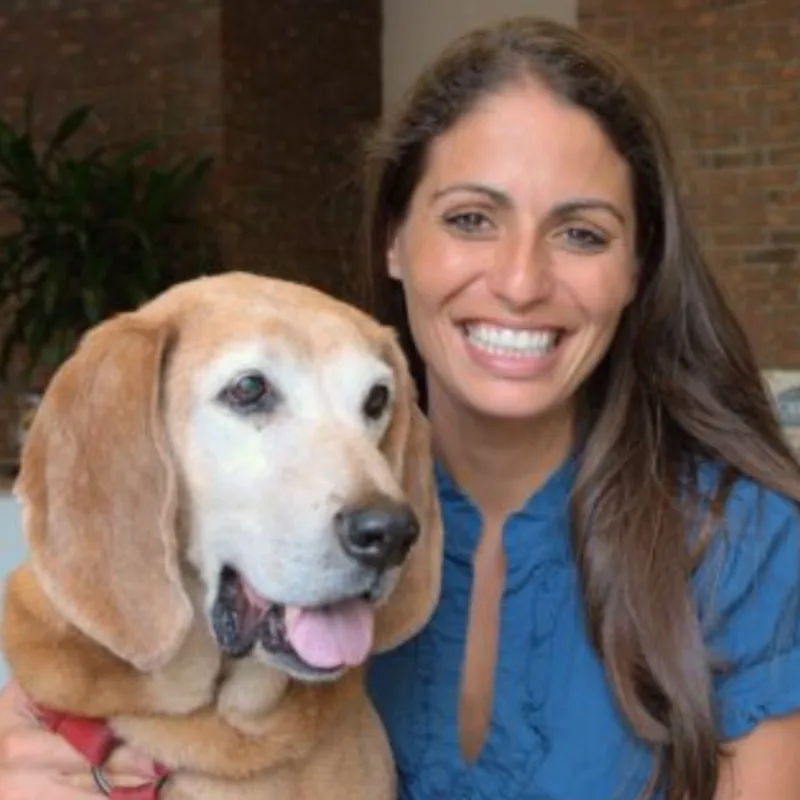Charleston Veterinary Referral Center (CVRC)

Oncology
Overview
The Oncology service at CVRC compassionately treats pets with any form of cancer with the primary goal of improving quantity, but most of all, QUALITY, of life. Unfortunately, cancer is quite common in our animal companions, with a prevalence of 25% (this increases to 50% in dogs >10 years old). Because some tumors, if caught early, can be managed or cured with surgery or other treatment modalities, early detection and intervention is crucial.
The management of cancer involves surgery, chemotherapy, electrochemotherapy, radiation therapy, or a combination of these methodologies. While the word "chemotherapy" can be so intimidating because of the connotation in humans, chemotherapy in dogs is aimed at killing as many cancer cells as possible without causing detriment to normal tissues, so the doses and management of chemotherapy in animals is so very different than in our human counterparts. We are adamantly committed to the goal that the treatment of cancer should NEVER be worse than the cancer itself.

What is a veterinary oncologist?
A board certified veterinary oncologist has obtained intensive additional training in oncology and has been certified by the American College of Veterinary Internal Medicine (DACVIM - Oncology). The advanced training and education required for certification includes a veterinary degree (3 or 4 years of undergraduate university, followed by 4 years of veterinary school), a rotating internship (1 year), an oncology residency (3 years), and passing two sets of rigorous examinations covering all aspects of general internal medicine and oncology.
What diseases does the Oncology service manage?
Skin tumors
Mammary tumors
Lymphoma/lymphosarcoma
Splenic tumors
Liver tumors
Kidney tumors
Endocrine tumors
Bone tumors (osteosarcoma)
Hemangiosarcoma
What diagnostics does the Oncology service offer?
Physical exam
Full staging of cancer
Full in-house laboratory
Hematology
Blood chemistry
Urinalysis
Coagulation profile
Cytology
Full complement of external laboratories for advanced testing
Diagnostic Imaging
Digital radiography
Ultrasound
Echocardiography
Fluoroscopy
CT
MRI
Fine needle aspirates
Ultrasound guided biopsies
What treatments does the Oncology service offer?
Surgery
Chemotherapy
Electrochemotherapy
Palliative care
Do I need a referral?
No, you do not need a referral for our Oncology service. However, referrals are often beneficial as they provide us with direct details regarding your pet’s medical history. If you would like us to see your pet without a referral, please email us your pet’s complete medical records, along with any previous diagnostics that have been performed.
What should I expect during my visit?
If you are a new client to CVRC, we encourage you to fill out our online New Patient Registration Form ahead of time,[SJ1] or bring the form with you. Otherwise, please arrive to your appointment approximately 10 minutes early to complete this form in our office.
Visits with the Oncology service will take a few hours for initial consults. If your pet’s care is more complicated and additional time is needed, we will keep you informed. Your visit will start with the Oncology technician getting a full history from you. Please bring any medications that your pet is taking. The oncologist will perform a physical exam. A plan for further diagnostics will be discussed with you. When diagnostics are complete, the oncologist will meet with you to explain their findings, go through a management plan, and answer any questions you may have. Written reports will be emailed to you and your primary veterinarian. We will maintain an ongoing relationship with you to ensure the best experience for you and your animal.
What should I bring to my visit?
Your pet!
All medications that your pet is receiving.
All of your pet’s medical records (these can be emailed by your pet’s other veterinarians to CVRC).
The person bringing your pet to the initial appointment should have thorough knowledge of the pet.
Follow your normal routine for medications and feeding the day of your visit unless you have been instructed otherwise by our staff.
If your pet is anxious in the clinic and has been prescribed trazodone or gabapentin in the past, give a dose 1-2 hours prior to your appointment.
Will you keep my family veterinarian informed of the care my pet receives at CVRC?
Absolutely, as long as you wish us to. We will keep your primary veterinarian updated about everything that happens here so that we are all on the same page. Your veterinarian will also have access to your pet’s medical record through our portal.


